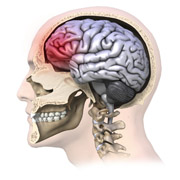Research and Innovation, UNL Office of

Center for Brain, Biology, and Behavior: Faculty Publications
Document Type
Article
Date of this Version
2020
Citation
Obes Sci Pract. 2020;1–11. DOI: 10.1002/osp4.403
Abstract
Summary
Introduction: Obesity is linked to altered activation in reward and control brain cir-cuitry; however, the associated brain activity related to successful or unsuccessful weight loss (WL) is unclear.
Methods: Adults with obesity (N = 75) completed a baseline functional magnetic res-onance imaging (fMRI) scan before entering a WL intervention (ie,3-month diet and physical activity [PA] program). We conducted an exploratory analysis to identify the contributions of baseline brain activation, adherence behavior patterns, and the asso-ciated connections to WL at the conclusion of a 3-month WL intervention. Food cue-reactivity brain regions were functionally identified using fMRI to index brain activation to food vs nonfood cues. Food consumption, PA, and class attendance were collected weekly during the 3-month intervention.
Results: The left middle frontal gyrus (L-MFG, BA 46) and right middle frontal gyrus (R-MFG; BA 9) were positively activated when viewing food compared with nonfood images. Structural equation modeling with bootstrapping was used to investigate a hypothesized path model and revealed the following significant paths: (1) attendance to 3-month WL, (2) R-MFG to attendance, and (3) indirect effects of R-MFG through attendance on WL.
Conclusion: Findings suggest that brain activation to appetitive food cues predicts future WL through mediating session attendance, diet, and PA. This study contrib-utes to the growing evidence of the importance of food cue reactivity and self-regulation brain regions and their impact on WL outcomes.
Included in
Behavior and Behavior Mechanisms Commons, Nervous System Commons, Other Analytical, Diagnostic and Therapeutic Techniques and Equipment Commons, Other Neuroscience and Neurobiology Commons, Other Psychiatry and Psychology Commons, Rehabilitation and Therapy Commons, Sports Sciences Commons


Comments
© 2020 The Authors